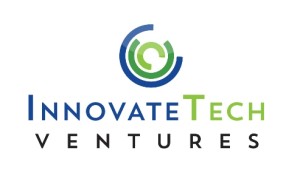Students and Faculty as CEOs
This week I spoke on an investor panel at a small conference. The audience was primarily researchers interested in commercializing their technologies. The panel was asked a common question, “what do you look for in the CEO of a startup?” In my company’s business model, we always hire experienced entrepreneurs (i.e., have previously run a startup, have raised capital) to run startups. As the other panel members addressed the question I realized that I didn’t want to give the researchers a negative message that “I would never invest in you as the CEO because you lack experience.” I have often acknowledged that despite my strong preference for experience in a CEO the truth is that I’ve seen several student CEOs and faculty CEOs who have been very successful. The other panelist and I then described several characteristics that we have seen in an in-experienced but successful CEO.
The number one characteristic is that they are great communicators. The word “communicator” could apply to many things (e.g., good salesperson, good teacher, inspiring leader) and those are all skills that I’ve seen in successful entrepreneurs. These are people who like communicating. They get energy from interacting with people. They love to explain their ideas to others and are able to perceive what knowledge level the listener has and tailor the conversation to the listeners level (i.e., great teacher). They share a powerful enthusiasm for their idea and covey that to listeners but at the same time perceive that the listener values and coveys how their idea delivers that value (i.e., great salesman). To a customer, they tell how their product meets their needs. To an investor, they tell how their business will bring them a return. One of the challenges in technology commercialization is that many inventors are brilliant scientist and inherently introverts. Some may be great teachers but fewer would meet the definition of a “great communicator”. Of course, some do.
The second point we discussed was being coachable. This is a common phrase used by investors and simply means that the entrepreneur is willing and able to listen to advice, accept it and act on it. Even when it is contrary to their established opinion. A coachable entrepreneur also has a good awareness of what areas they have expertise in, and what areas they don’t. Sometimes scientist, especially very experienced and accomplished scientist have been viewed and treated as intellectual experts for so long, that they have difficulty accepting that they may need fundamental coaching in areas such as marketing and sales and finance.
I added a final point and a caveat to the need to be coachable. Many of the researchers in the audience had been receiving lots of advice from various experts and mentors and were constantly being reminded that they need to accept coaching. But my final comment was that after listening to that advice they had to be willing to make a decision, often in the face of conflicting advice, and commit to that course of action. In-experienced entrepreneurs who get advice from a many well-meaning potential customers, advisors and mentors will find that there is conflicting advice and lack of consensus around some issues. An entrepreneur who never takes action because they can’t get consensus will not succeed. Every successful entrepreneur has to deal will imperfect information and advice, and in the end, make a decision knowing that it may be wrong, and move forward.
So I would argue that students, faculty and scientist without experience as a startup CEO can be successful as an entrepreneur, provided they are willing to develop great communication skills, be coachable and at the end of the day be decisive.



